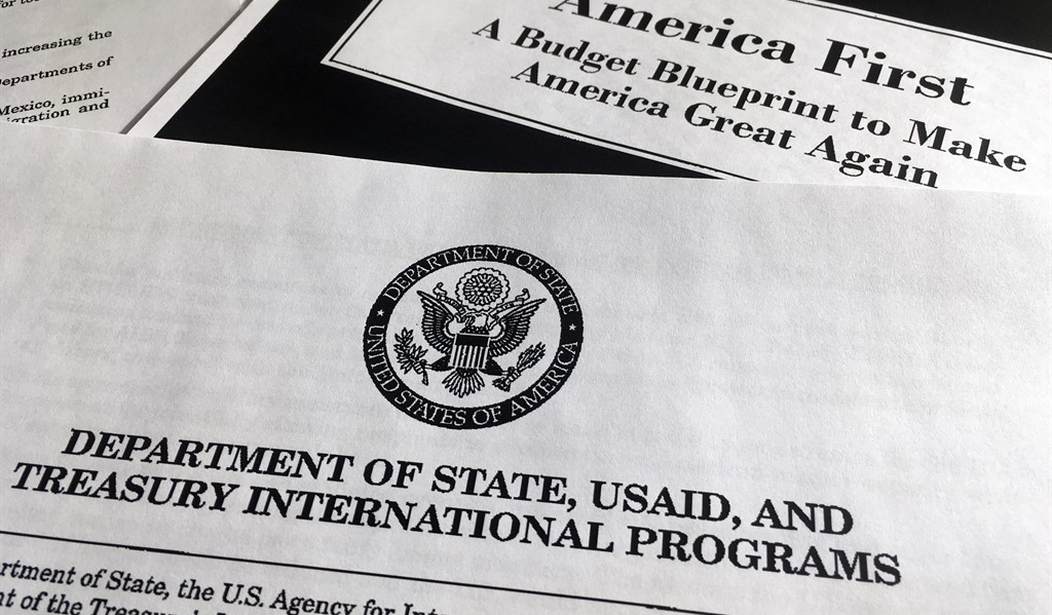Whatever else may be said or thought about Donald Trump, Elon Musk, and the Department of Government Efficiency (DOGE), they have demonstrated beyond all doubt the truth of that familiar maxim first stated by former Supreme Court Justice Louis Brandeis:
If the broad light of day could be let in upon men’s actions, it would purify them as the sun disinfects.
Are you wondering if I might be misquoting the famous former Supreme Court Justice because you think what he actually said was this?
"Sunshine is said to be the best disinfectant."
Allow me to clear up the confusion. The latter, well-known Brandeis maxim is, according to the Sunlight Foundation, what he said in a 1913 Harper's Weekly article regarding the good effect of "publicity;" the former quote is something he wrote in a letter to his fiance in 1893. The shorter of the two quotes is more succinct (and far better known), but the longer one points to the most crucial element in the light-shining process.
That would be the "men's actions" Brandeis referenced. Things that need disinfecting in government don't just happen by themselves. People, be they elected officials, officials appointed by other officials, or the career workers who take care of the day-to-day drudgery of government operation, make the spending happen. There are always names and faces behind decisions that lead to official actions.
Why is this significant? You should read no further if you have no problem with the federal government spending millions of tax dollars funding trans-sexual conversion surgery in Latin America, or the rushed awarding of $20 billion in grants a few days before Joe Biden became a former president to seven highly favored environmental activist groups, or providing $59 million to house and care for illegal immigrants in New York City.
Or any of the other billions upon billions of dollars of wasteful, if not outright fraudulent and even criminal spending exposed to date by DOGE.
But if you care how federal officials are spending your hard-earned tax dollars, then listen up because, as a consequence of the DOGE revelations, we could be on the verge of achieving the third great landmark in proving that transparency and accountability are Big Government's worst enemy.
It was 1966 when the first landmark, the federal Freedom of Information Act (FOIA), was signed into law by then-President Lyndon B. Johnson. The measure became law thanks in great part to a California Democrat, John Moss, and a Republican congressman from Illinois, Donald Rumsfeld.
The FOIA guarantees every American citizen the right to review on request, subject to a host of rules and exceptions, a hard copy of any and every document created by the federal government. Generations of old-school investigative journalists like yours truly were empowered by the FOIA.
Four decades later came the second great transparency landmark, the Federal Financial Accountability and Transparency Act of 2006 (FFATA). First conceived by Sen. Tom Coburn (R-Okla.) and then co-sponsored by then-Sen. Barack Obama (D-Ill.), the FFATA mandated creation of USASpending.gov. The FFATA was also signed into law by a President from Texas, George W. Bush.
That website puts most federal spending within a few mouse clicks for every American with a computer and access to the Internet. Where the FOIA required weeks (and not infrequently months or even years) to gain the promised access to official records, USASpending.gov makes it possible for any diligent citizen within a few seconds or minutes to gain an incredible wealth of knowledge about where their tax dollars are going.
But note that, while the primary focus of the FOIA is on paper documents and USASpending.gov has the central focus on dollars spent, neither has the explicit and commanding purpose of making it possible for every citizen to know who in government made decisions that resulted in documents accessible under FOIA being created and the government issuance of checks to recipients of tax dollars.
Recommended: If You Love DOGE, the Best (and the Panicky Worst for the Left) is Still to Come
Thus my point here is the need for and, thanks to the digital revolution, the feasibility of the third great transparency landmark, the digital mapping of the government's Spending Decision Transparency Tree (SDTT) for every tax dollar spent.
What Eric Kavanagh, a grizzled veteran of the transparency campaign, dubbed in 2005 the "Citizen Auditor" is now not only entirely achievable, but the current explosion of sunlight into the darkest corners of federal waste, fraud, and corruption can fuel the needed political momentum.
The wailing shrieks of outrage and songs of desperate protest sparked by DOGE are loud to be sure, but DOGE is mainly focused on determining where the federal dollars are going, and only incidentally with determining the who and how of the decision that prompted the expenditures. The defenders of secrecy in government spending will be paralyzed by the demands for the SDTT.
Creation of the SDTT will mark the final frontier of making every citizen who so chooses to be an auditor and of making the federal government transparent and accountable as never before in the long history of our greatly blessed American Republic.
Being a journalist, I have loved the FOIA and USASpending.gov for the magnificent steps forward they enabled. Now is the time to complete the process of making government transparent and accountable by ensuring public access to the names, titles, and actions of every decision-maker involved in every expenditure of public funds. Bring on the SDTT!










